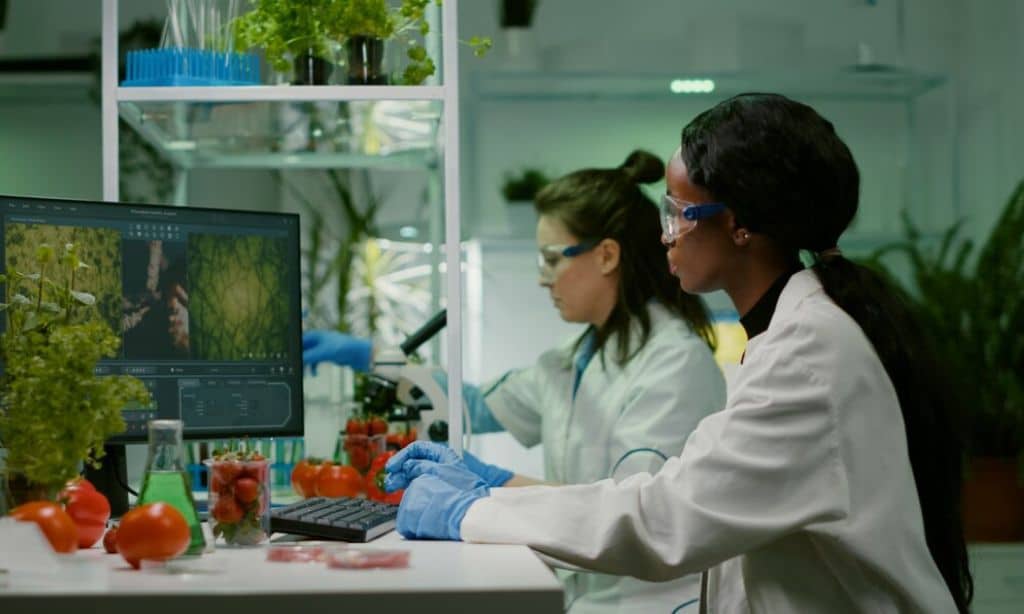STEM (Science, Technology, Engineering, and Mathematics) fields have long been the driving force behind human progress, empowering societies with groundbreaking technologies, scientific discoveries, and solutions to global challenges.
As industries evolve, universities and colleges have embraced the need to offer specialized, interdisciplinary STEM programs that cater to emerging trends and future demands.
In this article, we explore 12 unique STEM programs that go beyond traditional curricula, offering students innovative pathways to build impactful careers.
Whether you dream of exploring the cosmos, safeguarding the environment, or revolutionizing healthcare, these programs will set you on a transformative academic journey.
1. Biomedical Engineering

Biomedical engineering stands at the intersection of engineering and medicine, focusing on designing tools, devices, and technologies to solve complex healthcare problems. From artificial limbs to cutting-edge diagnostic machines, this field combines innovation and empathy to improve lives.
Biomedical engineering is an ideal choice for students who want to merge their passion for technology with their desire to make a difference in the medical field. You’ll study a blend of biology, engineering principles, and material sciences, learning how to develop life-saving equipment such as pacemakers, prosthetics, and advanced imaging systems. In addition to classroom-based learning, students often gain hands-on experience through collaborations with hospitals, research centers, and biotech companies.
Graduates of this program can work in diverse fields such as prosthetic design, medical robotics, pharmaceutical development, or academic research. With the constant evolution of healthcare technology, biomedical engineers are key players in addressing challenges such as aging populations, chronic diseases, and personalized medicine.
2. Environmental Engineering
Environmental engineering is a forward-thinking discipline that equips students to combat global challenges like climate change, resource depletion, and pollution. By combining science and engineering principles, students learn to design sustainable systems that protect our planet for future generations.
If you’re passionate about creating a greener world, this program is a perfect fit. Environmental engineering encompasses a wide range of topics, from water purification systems and renewable energy technologies to urban planning and waste management. Coursework often involves chemistry, hydrology, ecology, and soil science, providing students with a well-rounded foundation.
Real-world applications include designing green buildings, reducing industrial emissions, and finding innovative ways to recycle materials. Internships with environmental organizations, NGOs, or government agencies allow students to apply their skills and contribute to impactful projects.
In a world increasingly focused on sustainability, environmental engineers are essential for industries and cities striving to meet green targets and reduce their environmental footprint.
3. Robotics and Mechatronics
Robotics and mechatronics is a multidisciplinary program where engineering meets creativity. It involves designing, building, and programming robots and automated systems, with applications ranging from space exploration to healthcare.
Students in this program explore diverse subjects, including mechanical design, electronics, software engineering, and artificial intelligence. The hands-on nature of this program ensures that students gain practical experience building robots, programming automated systems, and conducting experiments in state-of-the-art labs.
Robotics plays a vital role in revolutionizing industries such as manufacturing, logistics, and surgery. From autonomous drones and robotic arms to home-assistive devices, the possibilities are endless. As businesses increasingly adopt automation, robotics and mechatronics graduates are in high demand.
The program also emphasizes ethical considerations, preparing students to create technologies that enhance human lives responsibly.
4. Cybersecurity
Cybersecurity focuses on safeguarding systems, networks, and data from threats in today’s interconnected digital landscape. With cyberattacks becoming more sophisticated, skilled professionals in this field are critical for maintaining the security of governments, corporations, and individuals.
A degree in cybersecurity goes beyond basic IT knowledge, equipping students with skills in ethical hacking, cryptography, threat detection, and incident response. Students learn how to secure cloud systems, identify vulnerabilities, and implement robust cybersecurity policies.
Programs often incorporate real-world scenarios, such as simulated cyberattacks, to prepare students for high-pressure situations. The field offers diverse career paths, from information security analysts and penetration testers to chief security officers.
Cybersecurity professionals are highly valued across industries, including healthcare, finance, and government, making this program an excellent investment in a future-proof career.
5. Data Science and Analytics
Data science and analytics is a cutting-edge program that focuses on extracting actionable insights from complex datasets. With data driving decision-making in virtually every sector, this field has become indispensable.
Data science combines mathematics, programming, and machine learning to analyze and interpret data. Students learn to use tools like Python, R, and Tableau to solve real-world problems. Coursework includes data mining, statistical analysis, and predictive modeling.
Practical applications range from optimizing marketing campaigns to forecasting economic trends and improving patient care. Graduates can pursue careers as data analysts, machine learning engineers, or business intelligence specialists.
With companies relying heavily on data to gain competitive advantages, expertise in data science ensures lucrative job opportunities and long-term career growth.
6. Astrophysics
Astrophysics is a fascinating field that combines physics and astronomy to understand celestial phenomena, such as stars, galaxies, black holes, and the origins of the universe. This program is perfect for individuals with a deep curiosity about space and a passion for solving some of the greatest mysteries of existence.
Students in astrophysics programs dive into topics like quantum mechanics, thermodynamics, and cosmology, gaining a comprehensive understanding of the universe’s workings. You’ll also get hands-on experience with telescopes, space observation tools, and computer simulations to analyze astronomical data.
Astrophysics isn’t just about observing stars; it’s about applying advanced mathematics, physics, and computational techniques to uncover the unknown. Graduates often find themselves working in research institutions, space agencies like NASA or ESA, or even in industries requiring data modeling skills.
With advancements in space exploration and the privatization of space travel, the demand for astrophysicists is growing. This program is ideal for those who want to combine intellectual challenge with the allure of the cosmos.
7. Renewable Energy Engineering
Renewable energy engineering focuses on the development of sustainable power solutions to combat climate change and reduce reliance on fossil fuels. This field is vital for transitioning to a greener economy and ensuring energy security.
In this program, students learn about solar panels, wind turbines, geothermal systems, and bioenergy technologies. Coursework combines mechanical and electrical engineering with environmental science to design and implement energy-efficient systems.
Renewable energy engineers work on projects ranging from large-scale wind farms to home solar installations, contributing to the global push for cleaner energy. Internships with energy companies and government initiatives offer hands-on experience in cutting-edge technologies.
The program is particularly appealing for those who care deeply about sustainability and want to make a tangible impact on the environment. With the renewable energy sector expected to grow exponentially, graduates have excellent career prospects.
8. Bioinformatics
Bioinformatics is an innovative field that merges biology, computer science, and data analysis to interpret complex biological data. This field is instrumental in advancements like genome sequencing, personalized medicine, and agricultural biotechnology.
Students in bioinformatics programs learn to develop algorithms, software tools, and databases to analyze biological information. The curriculum includes genetics, molecular biology, programming languages, and statistical analysis.
Applications of bioinformatics range from identifying genetic predispositions to diseases to enhancing crop yields. The field is rapidly evolving, with breakthroughs in drug development and precision healthcare making it a vital area of study.
Graduates can pursue roles in research labs, pharmaceutical companies, or biotech firms. This program is ideal for individuals who enjoy combining computational skills with a passion for solving biological challenges.
9. Space Science and Technology
Space science and technology delves into the study and application of technologies used for space exploration, satellite communication, and planetary science. This program is essential for the next generation of scientists and engineers contributing to space exploration.
Students explore subjects like orbital mechanics, spacecraft design, and satellite systems. Many programs include opportunities to collaborate with space agencies or private companies working on space missions.
This field offers hands-on experience in building and testing space instruments, analyzing data from telescopes, and exploring innovative solutions for human space travel.
Graduates find roles in aerospace companies, research organizations, or space agencies, contributing to projects like lunar colonization and Mars exploration. For those fascinated by the final frontier, this program offers unparalleled opportunities.
10. Materials Science and Engineering
Materials science focuses on understanding and improving the materials used in everything from electronics to medical devices. This field is at the core of advancements in nanotechnology, renewable energy, and structural engineering.
Students study the properties of metals, polymers, ceramics, and composites, learning how to enhance their performance for specific applications. Coursework includes nanotechnology, metallurgy, and crystallography.
Materials scientists play a key role in industries like aerospace, healthcare, and electronics, creating materials that are lighter, stronger, and more sustainable.
Graduates often work on developing cutting-edge technologies like flexible electronics, advanced prosthetics, and super-efficient batteries. This program is ideal for those who enjoy problem-solving and want to innovate in diverse industries.
11. Forensic Science
Forensic science applies scientific methods to analyze evidence and solve crimes. This program is ideal for those interested in criminal justice, biology, and chemistry.
Students in forensic science programs gain expertise in areas like toxicology, DNA analysis, and crime scene investigation. The curriculum often includes lab work, fieldwork, and collaborations with law enforcement agencies.
Forensic scientists play a crucial role in criminal investigations, ensuring that evidence is collected, analyzed, and presented accurately. Career opportunities extend to crime labs, legal consulting, and academia.
This program is perfect for detail-oriented individuals who want to contribute to justice and public safety.
12. Agricultural Technology
Agricultural technology combines engineering and science to revolutionize farming practices. This program focuses on developing technologies that enhance food production and resource efficiency.
Students learn about precision agriculture, robotics, and sustainable farming techniques. The curriculum includes soil science, irrigation systems, and agricultural economics.
This field addresses global challenges like food security and environmental sustainability. Graduates can work as agritech developers, sustainability consultants, or agricultural engineers.
Agricultural technology is ideal for those passionate about sustainability and innovation, with opportunities to make a tangible impact on global food systems.
Takeaway
These 12 unique STEM programs represent the forefront of innovation and opportunity. By pursuing one of these programs, students can align their education with their passions while contributing to transformative advancements in science and technology.
Whether you’re fascinated by space exploration, sustainability, or cutting-edge technology, there’s a program designed to help you achieve your goals. Explore these options, make informed choices, and take the first step toward a fulfilling career in STEM.
Your future in STEM awaits—start your journey today!







































